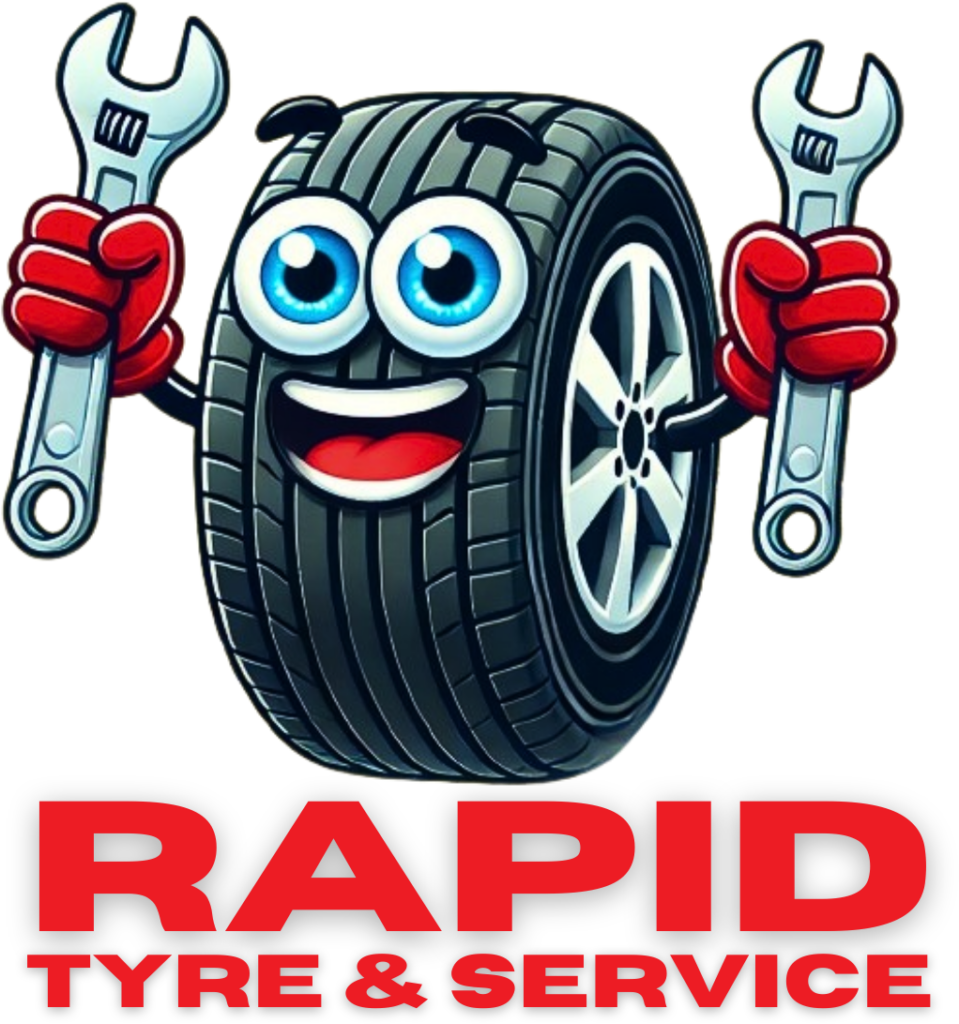Your car’s tires are the only point of contact between your vehicle and the road. Despite this critical role, tires often don’t get the attention they deserve. Keeping your tires in good condition is not just about enhancing the appearance of your car; it’s about ensuring your safety, improving performance, and saving money in the long run. In this blog, we’ll explore why maintaining your tires in good condition is essential and how it impacts your driving experience.
- Safety First
a. Optimal Grip and Traction: Tires in good condition provide the necessary grip and traction on the road, which is crucial for safe driving. Whether you’re accelerating, braking, or taking a sharp turn, your tires need to have a solid grip on the road surface. Worn-out or damaged tires significantly reduce this grip, increasing the risk of skidding, especially in wet or slippery conditions. Good-condition tires help you maintain control of your vehicle, reducing the likelihood of accidents.
b. Shorter Stopping Distances: The condition of your tires directly affects your car’s stopping distance. Tires with sufficient tread depth and proper inflation allow for more effective braking. In emergency situations, the difference between stopping in time and not can depend on the condition of your tires. Well-maintained tires can shorten your stopping distance, providing an extra margin of safety on the road.
c. Prevention of Blowouts: Tire blowouts are one of the most dangerous events that can happen while driving, often leading to loss of control. Tires in poor condition are more susceptible to blowouts, especially at high speeds or under heavy loads. Regularly checking your tires for wear, cracks, or bulges can help prevent blowouts, keeping you and your passengers safe.
- Enhanced Performance
a. Improved Handling: Good-condition tires contribute to the overall handling and responsiveness of your vehicle. Tires that are properly inflated and have adequate tread depth allow your car to respond better to steering inputs, making driving smoother and more predictable. This is especially important when navigating through tight corners or during sudden maneuvers.
b. Better Fuel Efficiency: Tires that are in poor condition, underinflated, or not aligned properly can increase rolling resistance, which forces your engine to work harder. This results in higher fuel consumption. By keeping your tires in good condition, you reduce rolling resistance and improve your car’s fuel efficiency, saving money on gas over time.
c. Smoother Ride: Tires with even tread wear and proper inflation provide a smoother and more comfortable ride. Unevenly worn or damaged tires can cause vibrations, noise, and a bumpy ride, detracting from your overall driving experience. Maintaining your tires ensures that you enjoy a quieter and more comfortable journey.
- Cost Savings
a. Extended Tire Life: Regular maintenance, including proper inflation, alignment, and rotation, extends the life of your tires. Tires in good condition wear evenly and slowly, meaning you won’t have to replace them as often. This not only saves you money on tire replacements but also ensures that you get the most value out of your investment.
b. Reduced Vehicle Wear and Tear: Worn or unbalanced tires can cause additional strain on your vehicle’s suspension, steering, and alignment systems. Over time, this can lead to costly repairs. By keeping your tires in good condition, you reduce the likelihood of causing damage to these systems, ultimately saving money on maintenance and repairs.
c. Avoidance of Fines and Penalties: In many regions, driving with tires below the legal tread depth limit can result in fines and penalties. Ensuring your tires are in good condition helps you avoid these legal issues, keeping you compliant with road safety regulations.
- Environmental Impact
Good-condition tires are not only beneficial for your car and wallet but also for the environment. Properly inflated and well-maintained tires reduce your vehicle’s carbon footprint by improving fuel efficiency. Additionally, tires that last longer mean fewer tires are produced and discarded, reducing waste and the environmental impact associated with tire manufacturing and disposal.
- When to Check and Maintain Your Tires Regularly:
Make it a habit to inspect your tires at least once a month.
Before Long Trips: Always check tire pressure, tread depth, and overall condition before embarking on a long journey.
During Seasonal Changes: Temperature fluctuations can affect tire pressure, so be sure to check your tires during seasonal transitions. - Conclusion
Maintaining your tires in good condition is crucial for safe, efficient, and cost-effective driving. By ensuring that your tires are properly inflated, have sufficient tread depth, and are free from damage, you protect yourself and others on the road while also enhancing your vehicle’s performance and saving money. Don’t wait until it’s too late—regularly check and maintain your tires to ensure they’re always in top shape.
Invest in your safety, comfort, and peace of mind by keeping your tires in good condition. Remember, your tires are more than just rubber—they’re a critical component of your driving experience.




